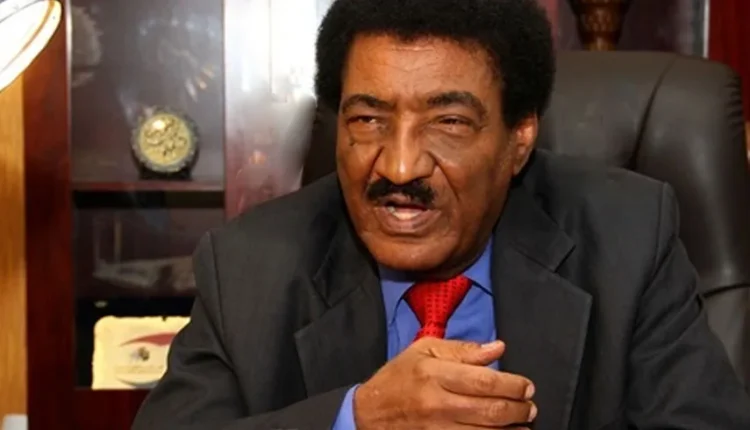The United Nations… Awaiting Ashol Deng and Mohamed Abdel Raouf

By Ambassador Abdel Mahmoud Abdel Halim
Ashol Deng was a distinguished Sudanese diplomat who served at Sudan’s Permanent Mission to the United Nations in New York and later as ambassador in several capitals, before the “trumpet of Sudanese unity” was blown. The blouse of the forest was torn from the skirt of the desert. He brought honour to Sudan and to peace-loving nations when he chaired the Sixth (Legal) Committee of the UN General Assembly in 1988. That committee adopted one of the most important resolutions in the organisation’s history – to move the General Assembly to Geneva to hear the statement of Yasser Arafat, after the United States flagrantly violated the Headquarters Agreement by refusing him a visa to address the Assembly in New York.
As for Mohamed Abdel Raouf, that was the birth name of Yasser Arafat, who proudly delivered his address in Geneva at the Palais des Nations on 13 December 1988, denouncing the American measure aimed at uprooting the “olive branch” he had warned must not be allowed to fall from his hand, and calling on the international community to shoulder its responsibility to end the occupation and establish the State of Palestine.
Thirty-seven years on, history repeats itself. The United States has failed to learn its lessons and once again withholds visas from the President of the Palestinian National Authority and his accompanying delegation, flouting its international obligations. The question arises: will the General Assembly act again as it did then?
At the beginning of the second week of September, a new session of the UN General Assembly will convene – the 80th since the organisation was founded in 1945 after the Allied victory over the Axis powers. Fate has this time entrusted Germany, one of those former Axis powers, with presiding over the 80th session, represented by its Foreign Minister Annalena Baerbock – the fifth woman to hold the post, following Vijaya Lakshmi Pandit of India in 1953, Angie Brooks of Liberia in 1969, Haya Rashed of Bahrain in 2006, and María Fernanda Espinosa of Ecuador in 2018. The German minister is even seen as aspiring to succeed Secretary-General António Guterres, whose term ends in 2026, amid growing calls for the post to go to a woman.
Eight decades filled with events have unfolded within the glass building on the East River separating Manhattan from Brooklyn and Queens – a plot of land gifted by Rockefeller, with construction completed in 1952 at a cost of 65 million dollars. That building has witnessed disappointments and hopes, defeats and achievements. From within it, many independent states emerged through decolonisation and trusteeship efforts, while the wound of Palestine remained unhealed. From its podium, the world saw Khrushchev’s shoe, Colin Powell’s fabrications, Hugo Chávez holding his nose after George Bush spoke, declaring the hall polluted, Muammar Gaddafi tossing the UN Charter aside, and Libya’s Shalgham breaking down in tears in the Security Council – tears dried by the US Ambassador and Ban Ki-moon himself. Delegations have walked out; others applauded. Kings, presidents and ministers from every corner of the globe have spoken from its rostrum: Macron, Lula, Biden, Ahmadinejad, Tamim, Bashir, Erdoğan. There, representatives of countries with over a billion people sit alongside those whose population could fit into a tourist site or a football stadium. Delegates’ ties vary in colour, sourced from boutiques in Colombo, San Salvador, Ulaanbaatar, Jakarta, or Abidjan.
The great voting boards in the General Assembly and its committees have reflected the changing international climate and the wide range of issues that go far beyond traditional peace and security: development financing, sustainability, biodiversity, corruption, epidemics, artificial intelligence, infant formula, aviation safety, and climate change. Yet the UN’s chronic failure to address the crises besetting today’s world, and the global system’s faltering mechanisms, have defied all remedies and revived calls to revisit the great theories of international relations – from Thucydides and Morgenthau, to Hobbes, Kant, and Machiavelli – especially in light of the negative performance of the current US administration on many global concerns, and questions over leadership, system type, and foresight.
In just a few days, giant aircraft will begin unloading their cargo of delegations, arriving to participate in the annual festival of multilateralism that is the UN General Assembly. This year’s theme is: “Working Together for Better Results: Eighty Years and Beyond in Pursuit of Peace, Development, and Human Rights.” The high-level gathering is expected to engage with the Secretary-General’s initiative marking the UN’s 80th anniversary, aimed at devising strategic plans for a leaner, less costly, more effective UN that can rise to current challenges.
There will also be high-level meetings on sustainable development and climate change, followed from 23 to 27 September by addresses from heads of state, government, and foreign ministers. Perhaps, by barring the Palestinian delegation before the session even begins, the United States has sought to send a message to the world’s representatives: “Do not dream of a happy world.”
Shortlink: https://sudanhorizon.com/?p=7345

